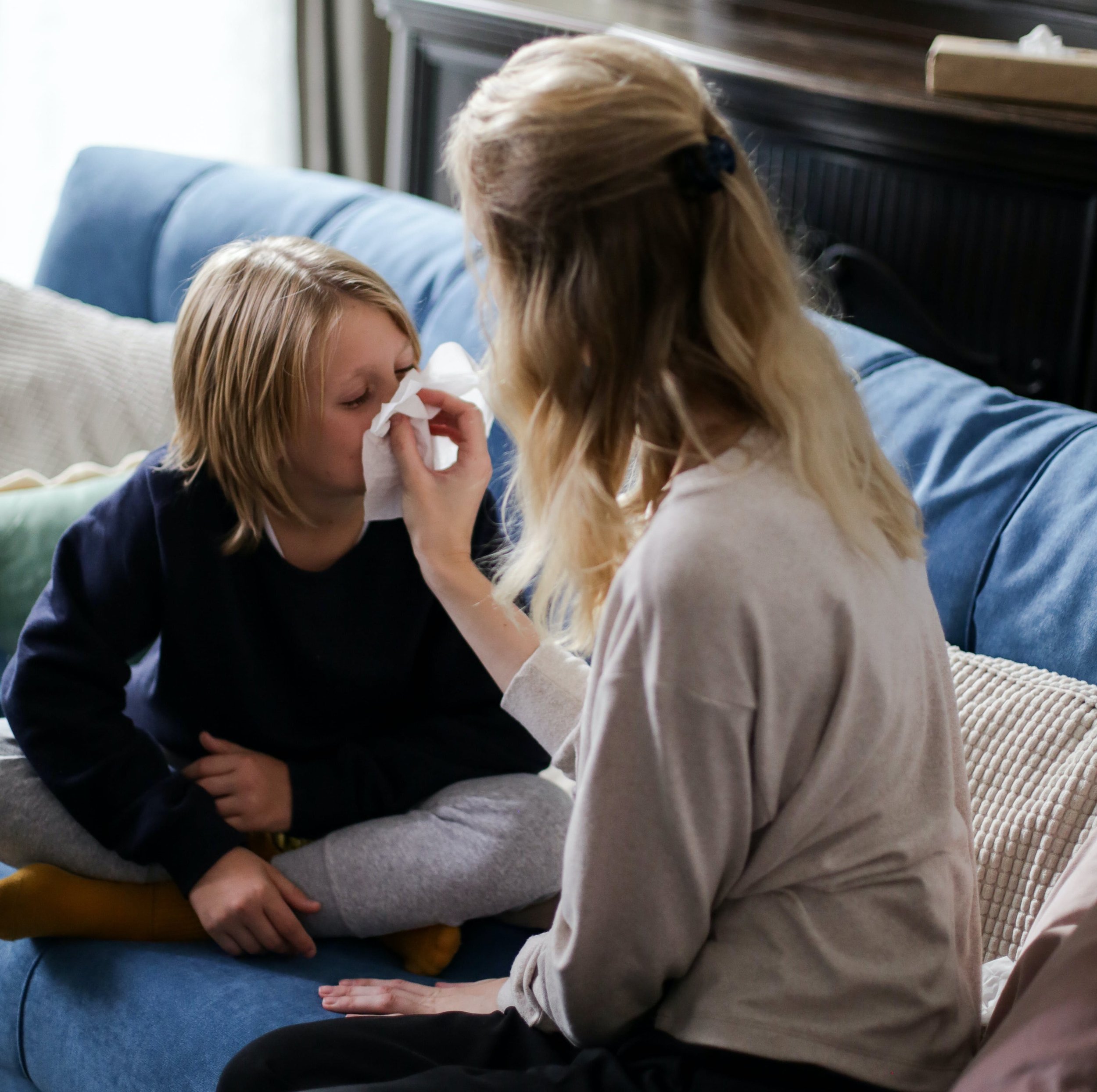While this Winter has been somewhat mild, there has been no shortage of illness doing the rounds and with cold temperatures set to sweep the nation over the next few weeks, it is likely that this season’s sniffles, sneezes and flu aren’t going anywhere fast.
For parents and nannies across the UK, the challenge of childcare during the winter months can be a delicate balancing act between comforting a sick child and maintaining a sense of normalcy in daily routines.
We are sharing some practical tips and tricks to help caregivers navigate winter illnesses, including how to manage symptoms, keeping little ones entertained and well-nourished and warning signs to watch out for.
Simple Soothing Techniques
If children are feeling a little worse for wear and showing signs of a cold, you can help ease discomfort with simple soothing techniques. This may include running a warm bath, wrapping them up in a cosy blanket and giving them their favourite stuffed toy for added comfort and a sense of security.
Rest is Essential
Children aged 13 and under will need between 9-14 hours of sleep and this only increases when they are unwell so ensure children suffering from illness get plenty of sleep to support their immune systems.
Emphasise the importance of rest and encourage naps throughout the day by creating a comfortable and quiet sleep environment.
Choose Low-Energy Activities
When a child’s energy levels are low, we suggest engaging in quiet and calming activities that allow them to rest and recover. Storytime, gentle arts and crafts or age-appropriate films create a gentle yet entertaining atmosphere for children who are lethargic or feeling the effects of a cold.
Child-Friendly Food & Drinks
Offer comforting, nourishing foods to support recovery. Warm soups, fruit smoothies and herbal teas can be soothing but whatever you opt for, ensure there is a balance of essential food groups and nutrients to aid the healing process. Some of our favourite child-friendly foods include:
Jamie Oliver’s “Jewish Penicillin” which is a take on a chicken noodle soup. This comforting broth-based dish is particularly good and packs in lots of fresh veggies so you can be sure children are getting plenty of essential nutrients.
Homemade Lemonade or Ginger Fizz are both beneficial when you have a cold. Lemons are packed full of vitamin C which can help reduce congestion and boost the immune system. Ginger is ideal for children facing tummy trouble as it can help to settle the stomach. Both of these recipes use sugar for sweetness but you can opt for something like honey as a healthier alternative as it also has antioxidant, antibacterial and antimicrobial properties which can help fight viruses.
Ice cream is one of those foods that will always go down a storm and fortunately it’s the perfect remedy to help soothe a sore throat. If you have a tub handy in your freezer, that will work just fine. Alternatively, for a delicious homemade treat, you can blend frozen bananas, greek yoghurt, honey and a splash of milk to make your own ice cream in minutes.
Hydration is Key
Encourage children to take frequent sips of water or have diluted fresh fruit juices and cooled herbal teas to keep themselves hydrated. Proper hydration is crucial for recovery and can alleviate symptoms like headaches, sore throats and fatigue.
Over-the-Counter Medications
You can usually consult your local pharmacist for guidance and they will provide recommended medications to help children who are feeling unwell. Whether you’re opting for off-the-shelf or over-the-counter medication, it’s important to first consult a healthcare professional and pay close attention to the directions before administering.
Prevention is the Best Medicine
Try as we may, we can never fully protect children from catching colds but there are simple methods that can help keep illnesses at bay or reduce a child’s chances of contracting bugs.
Instil good hygiene habits like regular hand washing and covering mouths and noses when coughing or sneezing.
Consider flu vaccinations and stay informed about local health recommendations through your family’s GP.
Ensure children are always prepared for adverse weather conditions. Here in the UK we can’t rely on mild or dry weather and exposure to cold and wet conditions can weaken the immune response, making children more susceptible to infections. Make sure children are layered up and always have a raincoat or umbrella handy when they leave home to help minimise this taking effect.
When to Seek Medical Attention
Be vigilant for signs that may warrant medical attention such as a persistent high fever, difficulty breathing, severe coughing or signs of dehydration. All of these, or any symptoms of concern should prompt a call to your family GP or a medical professional but trust your instincts and seek help if you're unsure.
Winter illnesses are an inevitable part of the season, but with thoughtful care and attention, parents and nannies can navigate these challenges with minimal fuss.
Each child is unique and cold and flu symptoms can manifest in many different forms. Our tips and tricks may therefore need to be adapted to cater to a child’s individual needs but focusing on low-energy activities, nourishing foods and effective soothing techniques should provide a positive environment for children so they can recover quickly this Winter.

